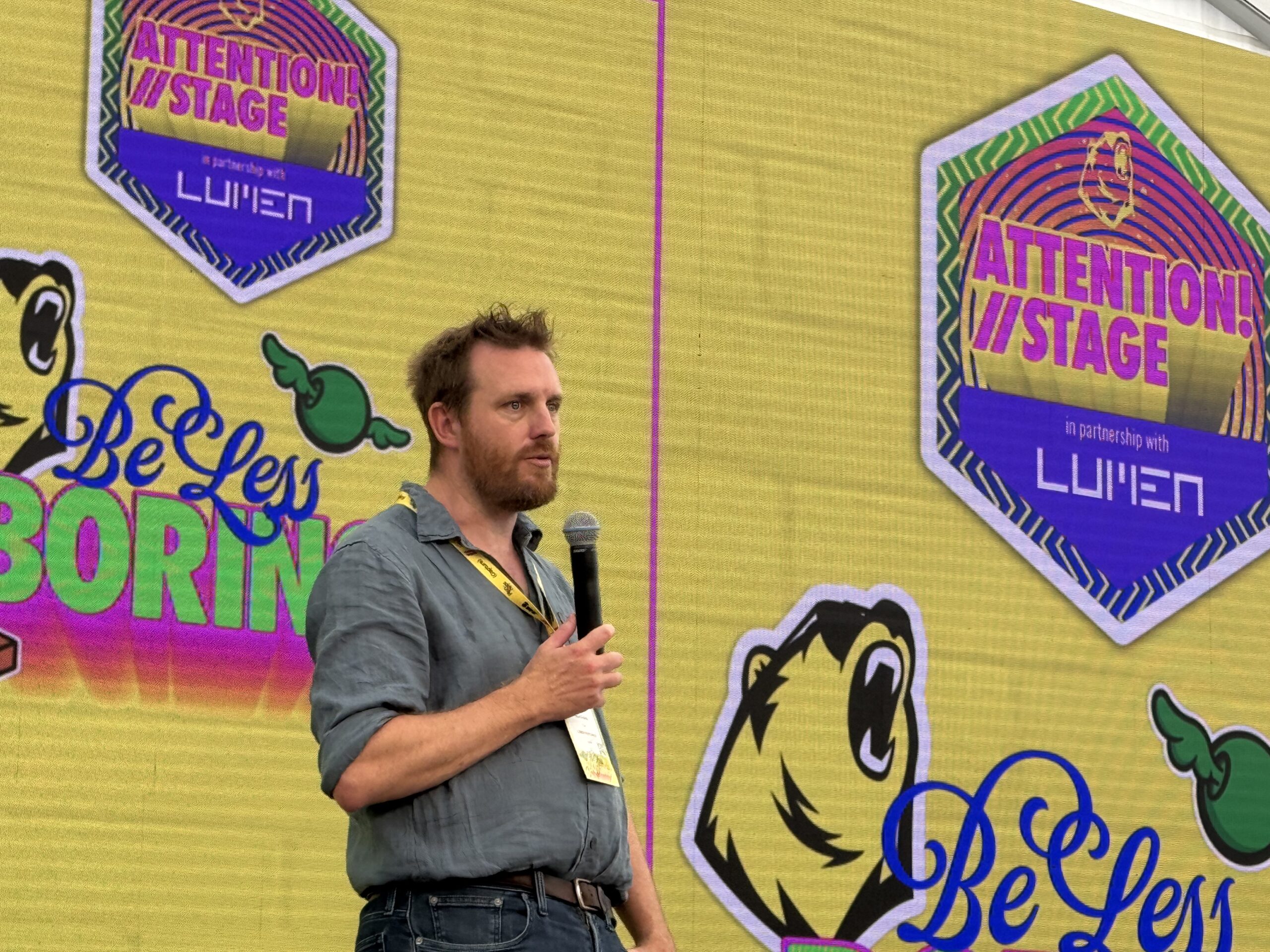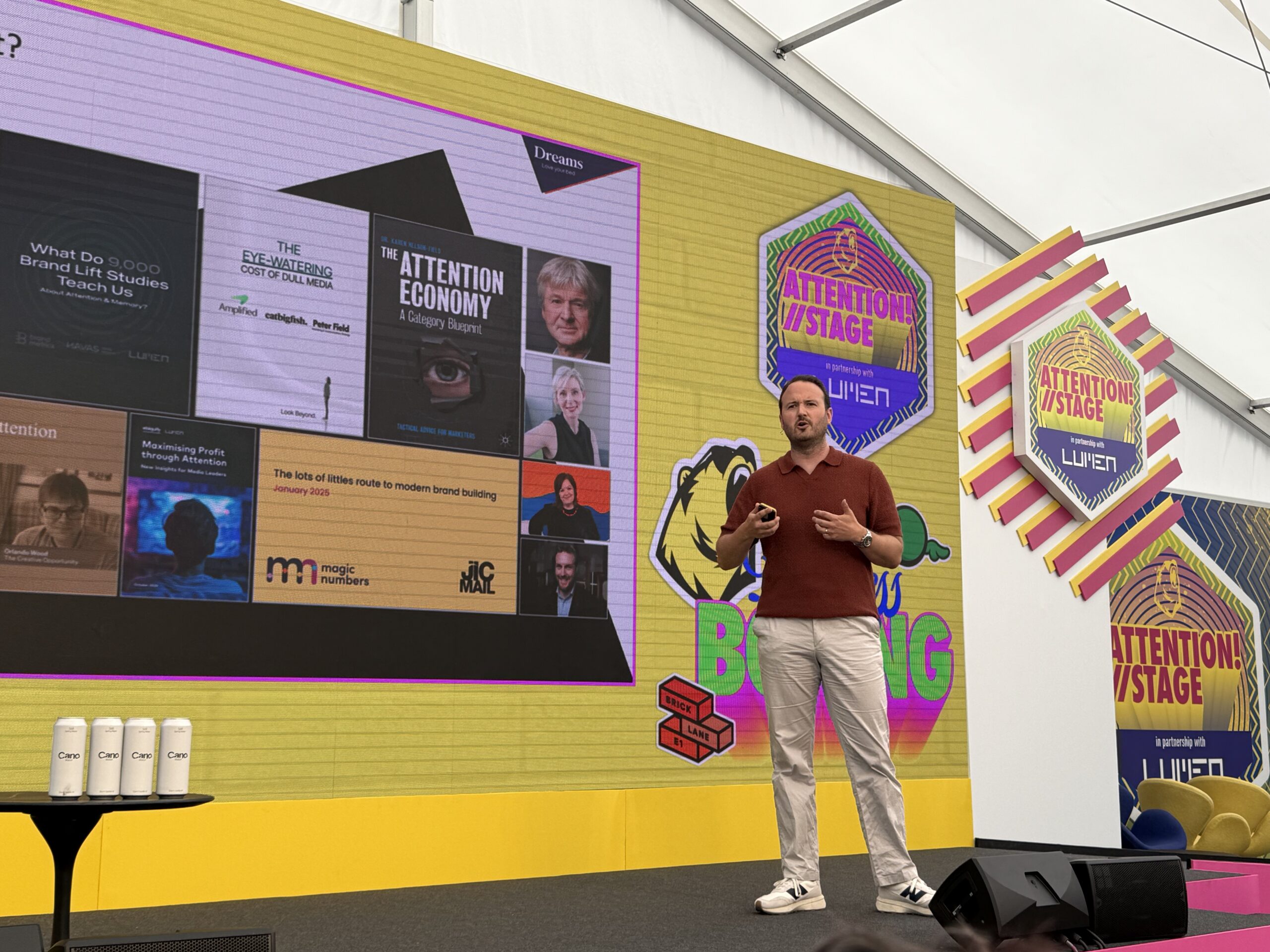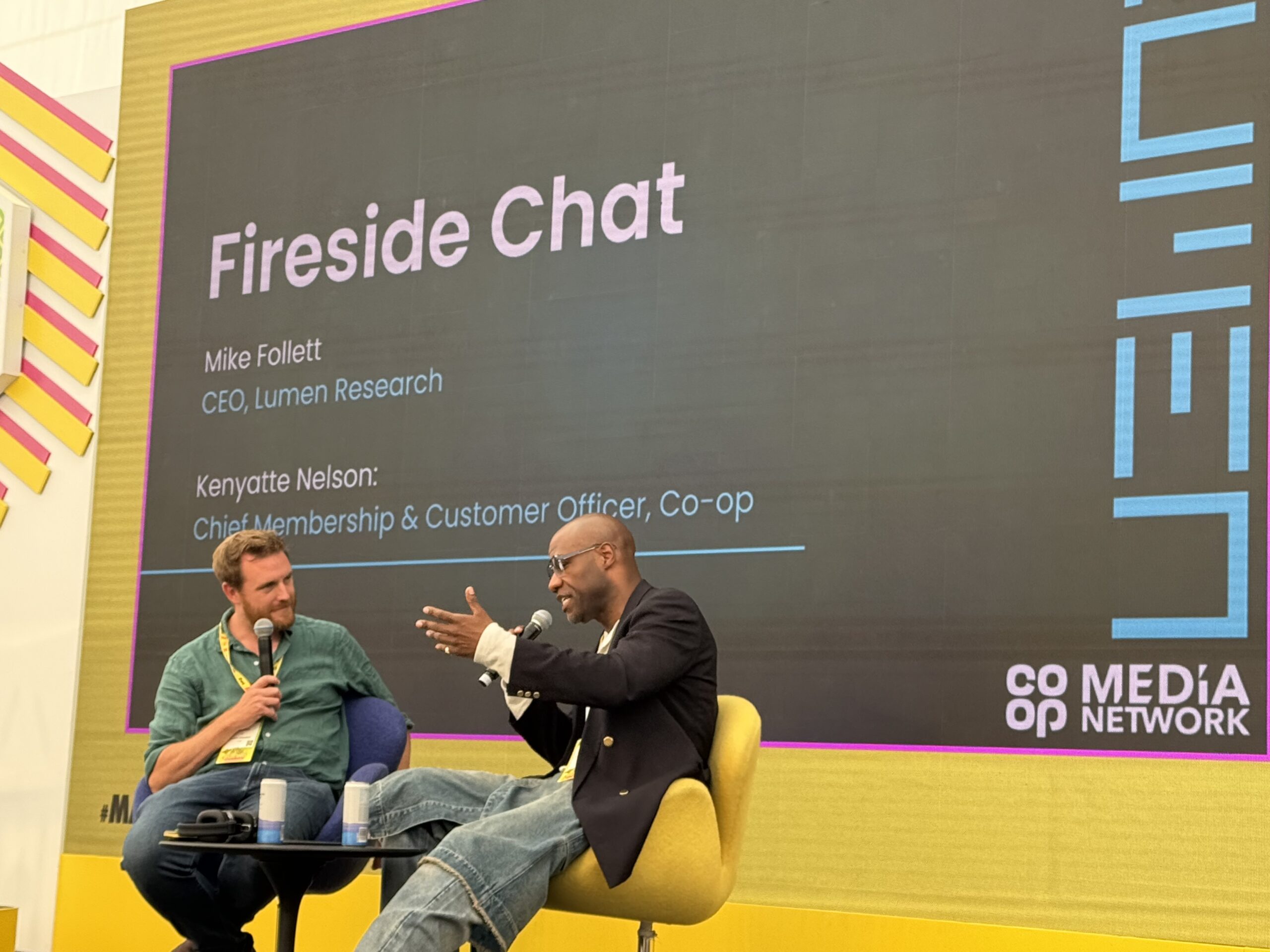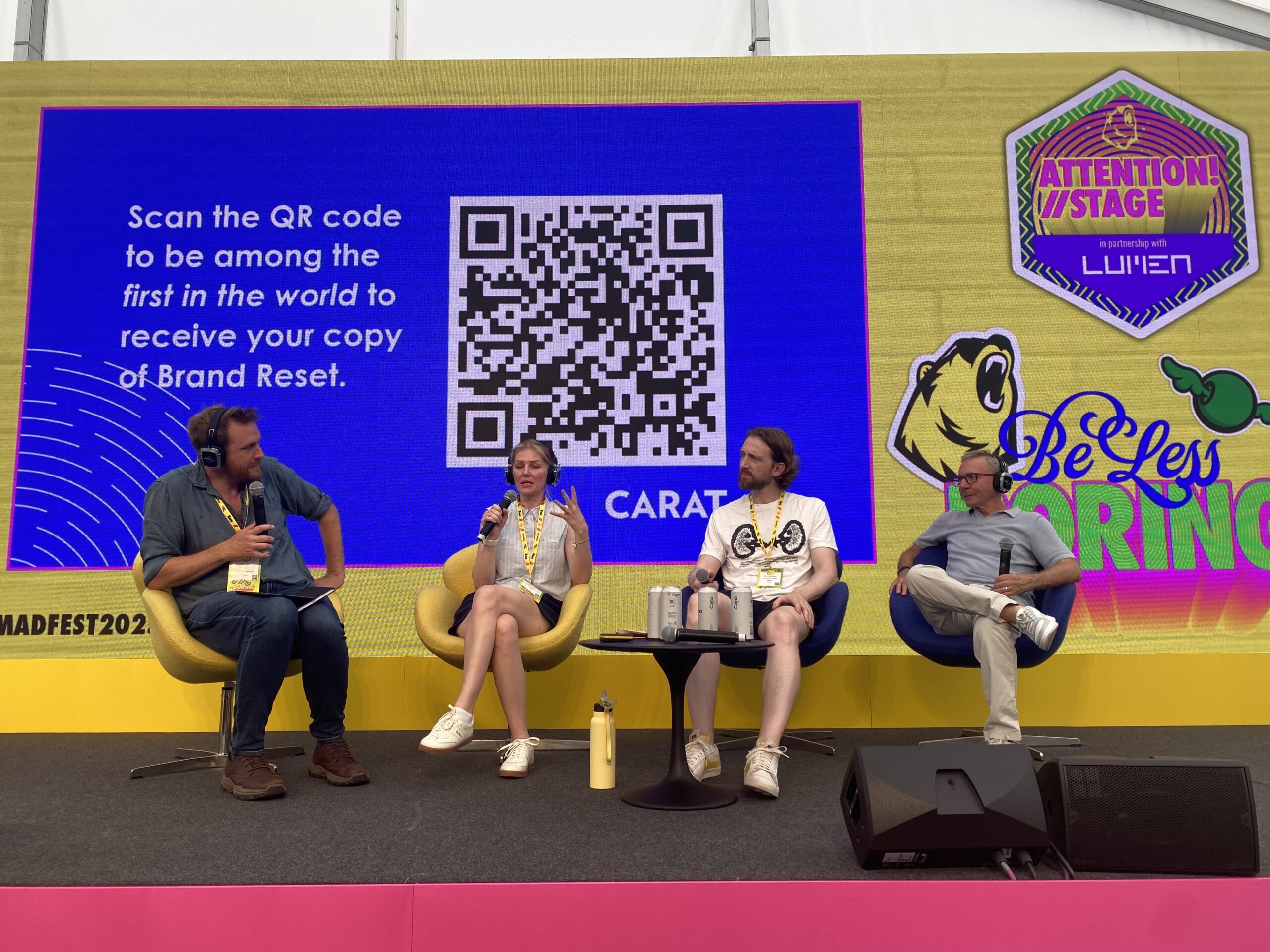The 5 key learnings from the Attention Stage in 2025 (and the one thing missing)

I always find the London MADFest event invigorating, illuminating, and, in a good way, exhausting. There’s so much great content that the challenge is taking it all in. In fact, taking it all in is impossible, so the challenge becomes more about cherry-picking the most useful sessions for you.
This year, for the 6th year running, Lumen sponsored the Attention Stage at MAD//Fest, and this gives the event real focus for me, as I can really hone in on some great sessions, looking at different aspects of a subject Lumen is really passionate about – attention.
For me, there were five standout sessions and takeaways, which I’ve done my best to summarise below…
1 – Sonic attention

The first theme that caught my attention was that we have ears as well as eyes. Discussions around attention tend to focus on the visual aspect – think eye tracking – but this year, we were reminded that sonic attention is also a thing. We had great talks from Magnum on how important their ‘Crack’ is as a branding device. We also had Pot Noodle talking about their ‘Slurp’ producing perhaps the most disgusting – as well as one of the most memorable – ads in human history. And we had the great Les Binet from Binet Consulting talking with Aifric Lennon from MassiveMusic about the power of music to drive attention. It was fascinating, and a reminder that when we think about ways of capturing consumers’ attention, we should remember all five senses. I hope to see sessions exploring taste, touch and smell next year.
Read Dentsu Research ‘Dentsu partners with top six audio destinations’
2 – Long-term attention

The second theme was around time. For ages now, whenever we’ve talked about attention, we’ve tended to look at the short-term impacts of attention. But this year, we heard how advertising also works over the long term, and some of the most interesting talks were about aggregate attention, frequency and flighting. Simon Moore from Dreams and Jon Waite from Havas explained how Dreams takes a long-term view on attention and uses the concept of aggregate attention to drive their sales.
Meanwhile, Joe Parker from Ovo, together with Dan Sutton from Beatgrid, told a fascinating story about frequency, around understanding the optimal frequency of attention to drive business in the utilities sector. The key takeaway: building attention is not a once-and-done thing. It’s a journey, one that benefits from long-term investment and measurement to ensure you are on the right path.
3 – Influencer-led attention

The third theme was around influencers, and how they can get your brand an unfair share of attention. We had many different speakers on the attention stage talking about this, but for me, the most interesting talk was from Julie Chadwick of Dentsu Influence.
They specialise in helping brands understand influencers, but also helping influencers understand brands, making those connections that can drive better results for both parties. I really liked this idea of influencer marketing being a two-way street, that the most beneficial and effective brand/influencer relationships are those that endure.
Not least because the longer an influencer endorses a brand, the more credible that endorsement becomes in the eyes of the influencer’s followers. It was also fascinating talking to Julie about how attention data is an absolutely vital metric in understanding the true success of influencer marketing.
Read Dentsu Research ‘Influencing To Impact 2025’
4 – Making attention data easily accessible

The fourth theme was about convenience, and making attention data easily accessible. This came up in a few sessions, but the best exponent of this idea was Kenyatte Nelson of the Co-op, who talked about some recent research that they’ve done to understand how much attention goes towards point of sale (POS) materials in supermarkets.
The study they conducted showed how powerful POS is in capturing people’s attention literally at the point of purchase/sale. The really interesting insight here, however, wasn’t just that people look at this stuff, but what the Co-op is doing with the data they uncovered. Because they have realised that it’s all very well putting it into PowerPoint presentations, but really what they need to do is get that data into planning tools, because if your data isn’t in the planning tools, then it’s unlikely to be on plan.
Kenyatte said that POS media had a POS problem. It wasn’t there to be bought at the right moment, and so their work with all the big agencies, starting with Dentsu, has been really transformational in making point of sale attention media available within the planning tools.
5 – Attention drives brand outcomes

The fifth theme was around brand, and how attention drives brand outcomes. This is a topic that we’ve all been grappling with, but now we’re actually starting to do something about, and so it was really fascinating talking to Ewa Zawol from Dentsu, Bram Meuleman from Carat and the irrepressible Les Binet about the Dentsu Brand Reset project which is designed to understand the long-term impact of attention on memory.
They teased a big report coming out later in the year, and I certainly can’t wait to see the results. I think we all know instinctively that there is a causal effect between attention and brand outcomes, but independent research from a trusted source like Dentsu can only strengthen the argument.
What was missing? What happened to climate change?
I said five themes; there were in fact six I wanted to talk about, but the sixth was notable only by its absence. Anyone who attended MADFest, especially on the first day, will know that it was hot. It’s hot again today. The whole world is hotting up.
Just this week, the BBC reported that the UK Met Office now believes that “extreme weather is the UK’s new normal”. And yet, this was the first MADFest I can remember where no one was talking about the climate change crisis. And this, I think, is a real miss by the industry, by all of us.
Just because Mr. Trump doesn’t believe in climate change, that doesn’t mean that climate change isn’t happening, and as an industry we have to take it seriously. And so next year, I hope that companies like Scope3, GoodLoop and Greenbids will be back out in force at MADFest, telling us how we can all play our part in solving the climate crisis.
Article by Mike Follett, CEO, Lumen Research. For more information, please email hello@lumen-research.com










